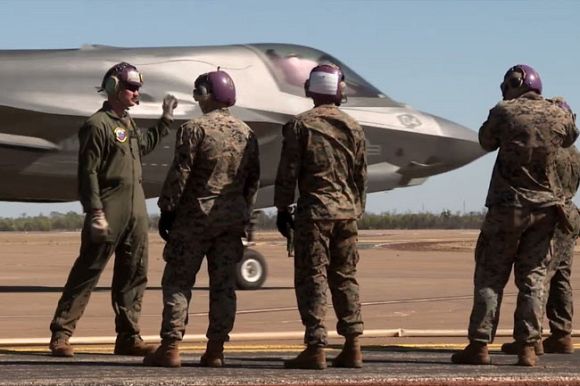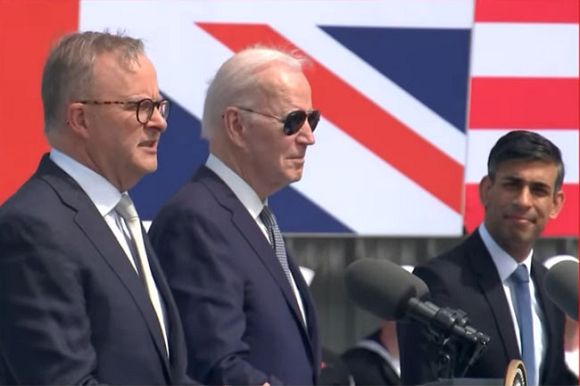Never has there been a greater need for Australia to end its military alliance with the United States and forge an independent and peaceful foreign policy.
This would necessarily mean an alternative self-reliant defence policy and the forging of friendly and mutually beneficial relations with the fraternity of non-aligned/neutral nations.
Even before the election of Donald Trump as President, we needed to be freed of the U.S. alliance. But his election and his policies have accentuated this need. The leadership of Australia’s two major political parties say that we share the same values as the USA and make that a justification for the continuation of the alliance.
Share the same values? The U.S. is trashing international institutions and conventions as it imposes on the world its “rules-based order”.
The U.S. has:
In violation of the UN Charter, the U.S. has signalled its intent to take over Gaza and expel its citizens to surrounding countries. If Australia’s leaders share the values that underpin these U.S. actions, the Australian people do not.
We do not need an alliance with a country with such disregard for international institutions and conventions to the detriment of peace and harmony on our planet.
Many commentators have drawn attention to the U.S. dominance in Australia which extends into the political, military, economic and cultural life of our nation.
Michelle Fahy, an independent writer and researcher, in her contribution to Arena Quarterly, September 2024 says:
Australia’s independence has been dangerously compromised by Labor and Coalition governments, which have signed up to deep-rooted military agreements with the United States of America.
These agreements have also underpinned the increasing militarisation of Australia: witness the 2022 speech by Labor’s Richard Marles, the newly appointed Deputy Prime Minister, in Washington DC, when he announced that Australian military forces would now become interchangeable with those of the United States.
In August, after this year’s formal annual talks with the United States, Defence Minister Marles announced that the meeting had “built on the last two in seeing a deepening of American force posture in Australia”. He added, “American force posture now in Australia involves every domain: land, sea, air, cyber and space”.
Fahy draws attention to the U.S.-Australia Force Posture Agreement (FPA), saying:
The FPA is the overarching determinant of our military relationship with the United States. It enables a significant increase in the militarisation of Australia in order to support America’s ability to wage war against China.
It says: “United States Forces and United States Contractors shall have unimpeded access to and use of Agreed Facilities and Areas for activities undertaken in connection with this Agreement”.
It also allows:
- unimpeded access to our airfields and airport facilities for U.S. combat aircraft and bombers;
- unimpeded access to our seaports for U.S. naval vessels, including U.S. nuclear submarines at HMAS Stirling in Western Australia;
- the construction of a U.S. Air Force mission planning, intelligence and operations centre in Darwin as part of $630 million in American spending across the Top End over the next two years;
- the establishment, under U.S. military control, of several storage facilities for aircraft fuel, spare parts and munitions, including eleven giant jet fuel storage tanks near Darwin’s main port at a cost to the U.S. of $270 million, which “will allow the U.S. to run large-scale exercises and operations from Northern Australia, demonstrating how strategically important the top end has become for Washington”; and
- the embedding of U.S. military intelligence analysts within Canberra’s Defence Intelligence Organisation, which will be renamed the Combined Intelligence Centre — Australia, a move Marles described as a “significant step” towards “seamless” intelligence ties.
Marcus Strom, National Convenor of Labor Against War (L.A.W.) in his address on 15 January 2025 to the Kings Cross branch of the Labor Party stated:
AUKUS is designed to put Australia at the forefront of the U.S. military planning against China.
The U.S. is very happy putting other people’s children in the firing line to defend its empire.
AUKUS is not about an independent defence policy for the Australian people, it is about locking Australia into U.S. war plans with China.
Organisations such as the Independent and Peaceful Australia Network (IPAN) have been campaigning for Australia to adopt an independent and peaceful foreign policy and close U.S. military bases in Australia since 2011, when U.S. President Obama and Australian PM Julia Gillard announced that U.S. Marines would be stationed in Darwin each year and training with our ADF.
This opposition to the U.S. presence has taken root in the community and now the third major political party, the Greens, has embraced the policy of campaigning for the cancellation of AUKUS and has announced its commitment to an independent and peaceful foreign policy.
In speaking to this policy, Greens spokesperson for Foreign Affairs, Peace and Nuclear Disarmament, Senator Jordon Steele-John, stated:
The Australian community are calling out for immediate cost of living relief, meanwhile, this Labor Government seems intent on nuclear submarines.
Withdrawing from the AUKUS political pact would save $73 billion over the next ten years. This could be reinvested in programs like seeing the GP for free, dental and mental health into Medicare and more public and affordable housing.
Greens Spokesperson on Defence, Senator David Shoebridge, continued:
AUKUS will not keep us safe, it was never intended to do that. The purpose of the billions in public funding towards nuclear submarines is for Australia to become an arm of the U.S. military. It has nothing to do with defending Australia.
AUKUS is a dangerous gamble that strips us of independence while taking hundreds of billions of public dollars from other essential projects. Being a subservient and dependent ally of the U.S., it keeps drawing us into their wars, serving Washington’s interest, not ours.
At its recent 2025 planning meeting, the IPAN committed to campaign for an end to the AUKUS security pact and the termination of the U.S.-Australia FPA. This campaign will be implemented under an overarching aim of independence from the U.S. alliance. For details: www.ipan.org.au.
Bevan Ramsden is an ex-telecommunications engineer and a long-time peace activist who advocates for Australia’s independence. He was a member of the coordinating committee of the Independent and Peaceful Australia Network (IPAN) for a number of years and is the editor of its monthly publication, ‘Voice’.
Support independent journalism Subscribe to IA.
Related Articles













